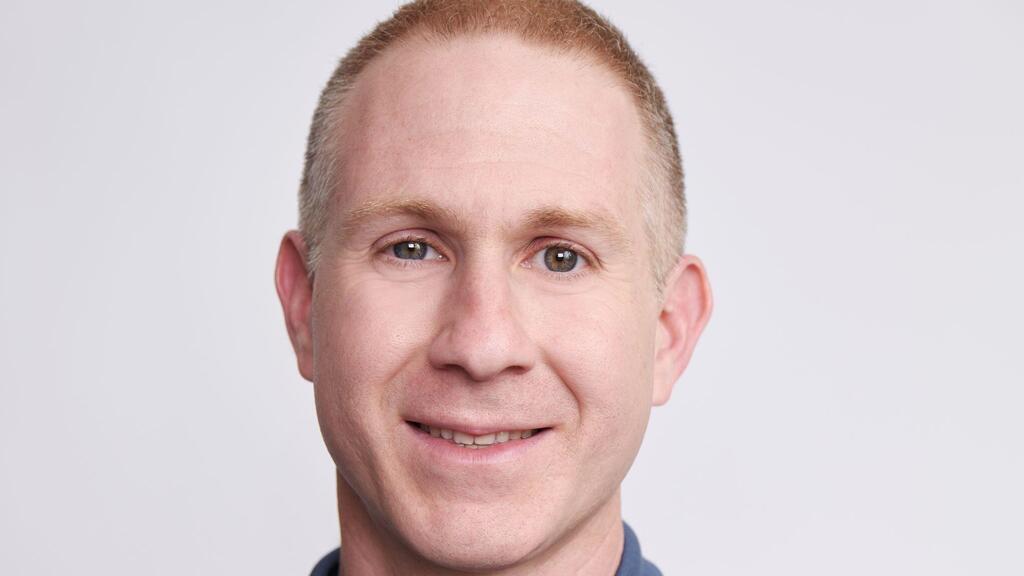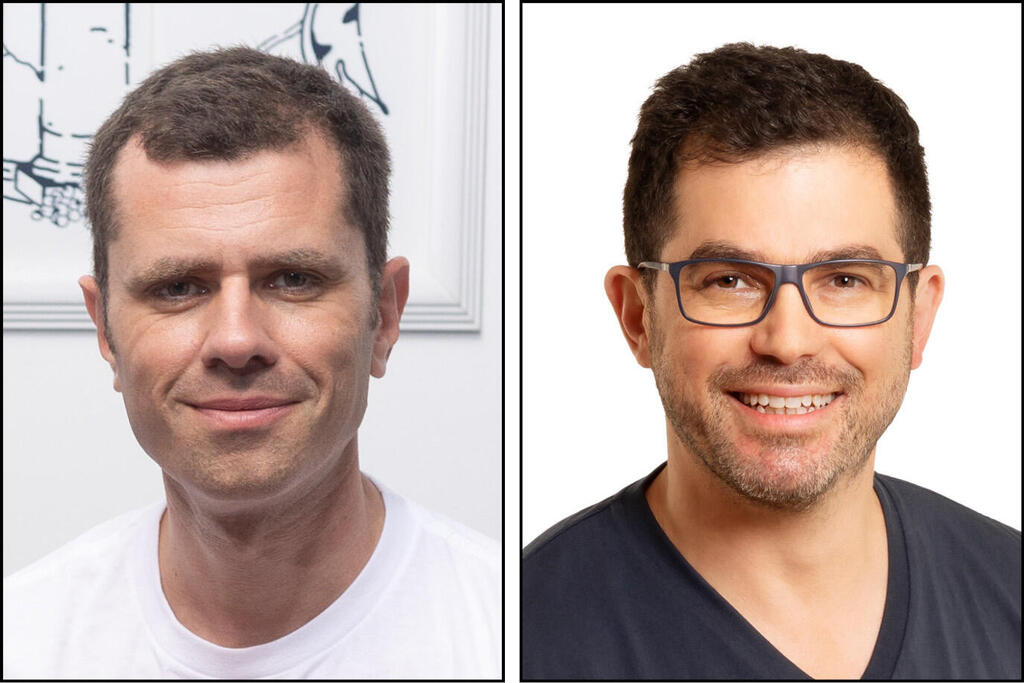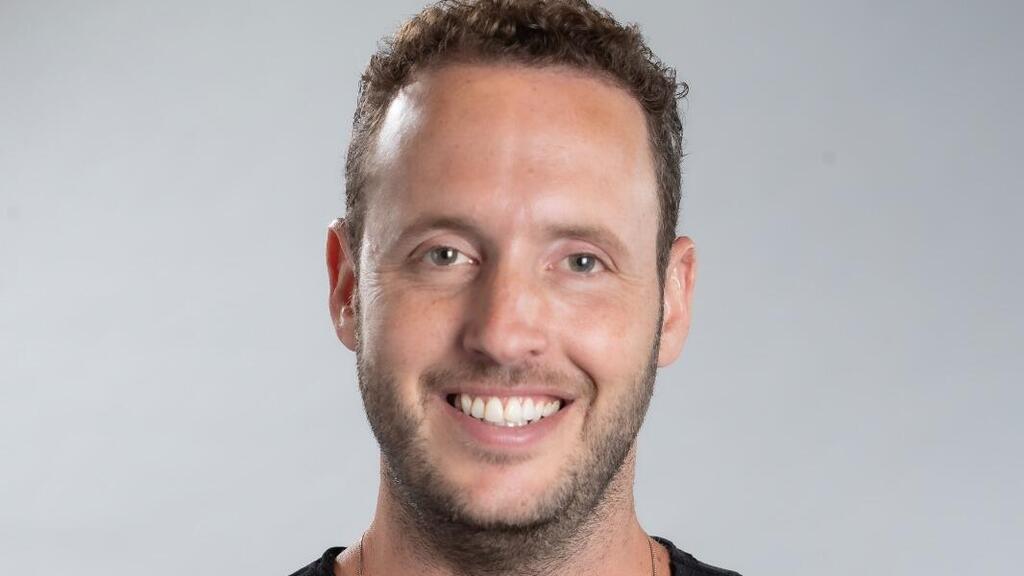
Stealth era: Secret startup boom signals shift in Israeli high-tech strategy
While public data tells a story of stagnation, under-the-radar fundraising and secretive new ventures reveal a hidden boom.
"It’s difficult to say this given the general reality in Israel, but 2024 is an excellent year for high-tech," says venture capitalist Eyal Niv. "We estimate that the total fundraising volume will reach approximately $12 billion, with early-stage fundraising alone amounting to around $3.2 billion. These numbers are significantly better than in 2023, and if we exclude the bubble years of 2020 and 2021, we're seeing consistent growth since 2018, when we raised $1.7 billion."
Niv’s words may surprise even those who closely follow Israeli technology news. With many entrepreneurs choosing not to unveil new companies or make major announcements about investments, hiring, expansion, or shiny new offices, it may seem to many as if nothing is happening. So, $12 billion? Really?
The truth is, there’s a lot happening — just under the radar. If military terminology hasn’t permeated our lives enough, here’s another one: stealth. This is how the Israeli high-tech sector is operating now — covertly, like a stealth bomber. Both young and veteran entrepreneurs are founding companies, registering them, hiring employees, and raising funds, sometimes even in multiple rounds. But only those who need to know about these companies are aware of their existence.
"Keeping startups under the radar has become the default," says Yair Snir, managing partner at Dell Technologies Capital. "We led two Seed rounds this year (the first major fundraising stage), but we didn’t announce them, and the companies remain cloaked in secrecy." Similarly, Niv from Pitango, which manages $3.3 billion and specializes in early-stage investments, speaks of six companies in which they’ve invested quietly; these companies don’t even appear in the fund's portfolio.
"Staying under the radar for an extended period has definitely become common recently, not only in Israel but globally," he explains. "The idea is not to reveal a company immediately after a Seed round but to wait, allowing things to mature before unveiling the company after two or even more rounds. This way, the funding amounts accumulate, and the numbers become more significant."
However, maintaining a low profile isn’t just about timing. This approach is convenient for companies for various other reasons, which came up in conversations with key figures in the industry. Many cited the need for secrecy to reduce pressure on entrepreneurs during the early stages of building a startup, as well as to avoid revealing technology that isn’t yet mature. Another major factor is the shift in the labor market: companies no longer need to compete aggressively for talent and, therefore, aren’t pressured to enter a hiring race. Some also mentioned a more relaxed approach among funds and investors. During the boom years, many suffered from FOMO (fear of missing out) and were quick to invest and announce investments to avoid being left out. Today, they are evaluating opportunities more carefully. One person even noted a subtle competition among entrepreneurs who served together in secret military units, each seeing who can stay under the radar the longest. And beyond these industry-specific reasons, the general atmosphere in Israel has led many to avoid flaunting their successes.
From a niche strategy to becoming the default
After October 7, Israeli high-tech, like many other sectors of the economy, experienced a certain stagnation. However, the meaning of stagnation in high-tech goes beyond just the question of "how much are they raising now?" It also concerns the future of the entire field, and in fact, the entire local economy. When new start-ups are not being established, the industry struggles to maintain its momentum, continue developing, and keep driving the country's growth. This concern over the future even led the Innovation Authority to launch a program about two months ago designed to encourage institutional bodies to invest in local venture capital funds, which would, in turn, lead to more new investments. Public data suggested this trend; for example, the veteran Pitango fund made almost no new investments. However, as mentioned, it actually invested in six companies. And now, Eyal Niv openly dispels fears about the future: "There are probably enough new start-ups being created, and the entrepreneurial landscape has not changed," he says — except that the vast majority of companies are now being registered abroad, unlike before.
Pitango is just one example of the gap between what is visible and what is happening behind the scenes. How deep is this gap? Many people in the industry are trying to understand it. LeumiTech, the arm of Bank Leumi that works with high-tech companies, and the information company IVC publish a quarterly report summarizing capital raises. However, the report also aims to fill in the information gaps, not only summarizing known data but also estimating the unknown. Since the last quarter of 2023, the authors of the report estimate a gap of almost 100% between reported and unreported fundraisings, meaning that the actual amount of funding raised is likely twice as high as what is publicly known. In the current quarter, for example, public data shows 101 capital raises, but it is estimated that the actual number is 171. In the previous quarter, 117 fundraisings were reported, but it seems the actual number was 243. At that time, they reported raising $2.4 billion, but it’s likely the real amount was closer to $3.7 billion. According to IVC’s assessment, while official figures show that Israeli companies have raised $8 billion since the beginning of the year, the real number is probably over $10 billion. In other words, an additional $2 billion has been raised under the radar.
Stealth is not a new strategy, but it has never been so widespread. In the past, it was typically used by a few start-ups focused on very unique, complex technologies that required long development times. Sometimes these companies maintained industrial silence for years, completing only a few rounds of fundraising or one very large round, and were only exposed to the world when they already had a finished product or were close to it. The goal of confidentiality was to ensure healthy operations and prevent competition.
Secrecy also creates an aura of exclusivity, especially when it involves well-known entrepreneurs. For example, serial entrepreneur Dan Amiga’s cyber company, Island, was revealed only after more than a year and a half of operations and raising about $100 million — a very high amount for such a young start-up. At its most recent fundraising round, four years after its founding, Island was valued at $3 billion.
Another traditional category of stealth companies is those in the security field. Two prominent examples from this year are Oz, which focuses on preventing friendly fire, and Kela, founded by Alon Dror and Hamutal Meridor, which is developing an operating system for the military. However, even Kela’s investors have not been given full details about the company’s future product.
In many cases, companies and investors coordinate the secrecy strategy, but sometimes things don’t go as planned. This is what happened with Eon, a company founded by ex-employees of Amazon's cloud division (AWS). Eon operated under the radar, raising $127 million in three rounds and reaching a valuation of $750 million, until the company’s plans were inadvertently revealed at the end of the summer, even though its product for cloud data backup wasn’t yet ready.
For years, stealth was a strategy suited to certain companies and entrepreneurs with specific goals, such as long, silent work on a secret product and a competitive edge. But then Israeli reality changed, making secrecy more common. Fundraising that occurred before October 7 but was completed after the attacks was not reported, nor were any fundraisers initiated later in the year. In the existing public atmosphere, and with many workers serving in reserves, everyone understood that it was inappropriate to announce such information. After reality led entrepreneurs to adopt a stealth approach due to the prevailing atmosphere, they discovered additional benefits.
"We wanted to make sure that we fully understood our messages before they reached the world unevenly, or before we were forced to change direction," explains Ofir Ehrlich, co-founder and CEO of Eon. "We didn’t seek secrecy, but we spoke to many people about the product. We also took advantage of the relative quiet to focus on work, and during this time, we registered hundreds of patents in the backup and storage world."
An early-stage company still needs workers
Guy Flechter has plenty of experience operating in stealth mode. In 2020, he co-founded the cyber company Cider with Daniel Krivelevich, keeping it under the radar for a year and three months (including Seed and Series A fundraisings). Two years later, he sold the company to Palo Alto Networks for $300 million. At the beginning of this year, he left Palo Alto and founded Sola, also in the cyber field, with hopes of a longer period of stealth. However, it didn’t quite work, as in July, it was revealed that the company raised $28 million — an unusually large amount for a Seed round.
Still, Flechter managed to avoid too much exposure for the company. He learned a simple lesson from what he witnessed in previous years: don’t expose yourself when you’re not yet ready. "During the bubble period, everyone wanted to get out quickly and take the position of being the first in the category, whether it was true or not," explains Flechter. "This was especially true in the cyber field, where three or four companies launched almost simultaneously with products solving the same problem."
"But everyone learned the hard way that when you're first exposed with your capital raise and product, it's your 15 minutes of fame and your chance to get 'leads' and recruit new customers. But then, suddenly, 200 requests come in for demos of a product that’s not ready. You don’t have strong marketing and sales teams, and you can’t handle so many potential customers. This creates a situation where you receive good, quality leads, but you have no way to respond, so you send them away with the promise that in a few months you’ll have a POC (proof of concept), and while you’re not ready, your potential client finds a solution elsewhere."
In contrast to this distinct advantage, Flechter mentions the main disadvantage of secrecy, which was a recurring theme in all the conversations on the subject: recruiting employees. "Hiring employees is always a tough task, but it's even more difficult when you're in stealth mode. It’s hard to recruit workers if they can’t find any information about the company online, if they're not completely sure everything you're telling them is actually happening. They're looking for posts about your company; they want confirmation."
Various interviewees for this article discussed the different aspects of the employee issue. On one hand, we’re no longer in the "employee market" peak nor in the frantic race for talent that was prevalent two or three years ago. Many companies have laid off workers or reduced benefits. Recently, there’s been a trend of declining salaries, and the average salary in the industry is now 16% lower than during the peak of the bubble, about three years ago. This drop in wages reflects a stabilization after cuts, and involves the fact that workers are now less inclined to move between companies, meaning they aren’t enjoying the wage increases that were common in the good times. Therefore, it’s easier to recruit staff today. The campaign to attract workers is simpler, and companies don’t feel the need to inflate their reputation by issuing excessive fundraising reports. In this "employer’s market," employees are less picky and care less about who raised how much and in which round.
And in any case, most of the first employees, even the first 20, come from the founders' personal networks, which can still happen under stealth mode. "The timing of announcing the existence of a startup should serve a purpose," says Rotem Eldar, managing partner at the venture capital fund 10D, which manages $350 million and participated in several secret fundraising rounds this year. "Two or three years ago, companies needed a lot of employees to move forward faster and stay ahead of the competition. Therefore, they advertised themselves quickly to build a brand, look strong, and recruit people. Today, most capital raisings are smaller, and the teams are smaller, which makes it easier to bring them from the founders’ closest circles, from military service, or from their previous companies." However, he says, the top talent still needs to be persuaded to come, and that’s hard to do in a stealth situation. Some succeed at this — for example, Eyal Niv from Pitango speaks about perfecting the ability to recruit employees for secret companies, including using secret groups on Telegram — but it still complicates the process.
"Despite what seems like a slowdown, it’s still difficult to recruit employees, especially in engineering fields. So, I see no reason to stay in stealth. If you want to scale your number of employees and bring good talent to the company — especially since the war, when people aren’t eager to move — you need exposure," says entrepreneur Leonid Feinberg, referring to the difficulty small employers face when competing with the conditions offered by giants like Amazon, Google, Apple, Microsoft, and Nvidia. When startups can’t compete on conditions, they try to compete through technological challenges, which requires revealing the product, and by offering a promising employment horizon, which requires financial exposure.
Like Rotem Eldar, Feinberg also explains that the degree of secrecy depends on the goals. "When I founded AcceloWeb, my first company, in 2008, the concept was to maintain confidentiality because if the big companies found out what we were doing, they would overtake us, and we’d become irrelevant. So, I kept it confidential right up to the exit, but that came quickly," he laughs. "We revealed my second company, CloudEndure, faster, when we had several customers and felt the product was ripe and ready for the market. There was no fear of being overtaken." About five years ago, Amazon bought this company for $250 million. Feinberg worked there until recently and is now working on a new startup, Verax AI, which aims to simplify the adoption of artificial intelligence technologies by organizations. Last week, less than a year after founding the company, he and his partner Oren Gev announced a Seed round of $7.6 million. This is, by far, the shortest stealth period of Feinberg's career.
The focus of the entrepreneurs and the reputation of the funds
All these considerations for and against stealth concern entrepreneurs, but what about the funds? Investors are judged not only by their returns and exits but also by their degree of activity. Funds must appear active—searching, examining, and identifying the next big thing, and, above all, investing. Every year, lists of the most active entities in the field are published in Israel and around the world, and no fund wants to be seen as simply sitting on its money, collecting management fees, and doing nothing with investors' funds. Investors themselves receive updates on each investment, even in stealth companies, but there is a matter of general reputation that could be damaged, making it harder to attract new investors and raise future funds. "It's complex because we can't even publish the names of the companies we've invested in if they're in stealth mode," Eldar says. "But we assume that the existing investors in the fund will tell potential investors."
In other words, the interests of the funds sometimes do not align with those of the entrepreneurs. However, in the vast majority of cases, funds allow entrepreneurs to decide when to go public. "The transition of all startups to stealth mode distorts the true situation for both the funds and the industry as a whole, but we are taking the approach that the companies determine this," Eldar explains. But the longer the era of stealth continues, the more difficult it will be for funds to maintain this stance, as Flechter clarifies: "It's clear that funds are motivated, for reasons of prestige and activity display, to showcase the companies they have invested in. This helps attract additional investors and entrepreneurs. But at some point, if you continue to operate quietly for too long, it loses its real value."
The matter is also more complicated for funds, as Yair Snir from Dell Technologies Capital explains: "In today's reality, as a venture capital fund, it's not urgent for us to flaunt investments because what really counts are the exits. In the past, it was also important for funds, like companies, to show off, but the situation has changed—not only in Israel but globally. This is a purely business decision, regardless of the situation here. Today's fundraising volumes are smaller, so both we and the entrepreneurs prefer to highlight more significant, more impactful amounts, which can be achieved by combining the Seed rounds and A rounds. At this point, the company's story is more cohesive, and when customers begin to show interest, there’s already something tangible to present."
Amid all the considerations for and against secrecy, there seems to be one point of agreement: the disclosure of a startup generates a lot of background noise, and entrepreneurs—especially the young and less experienced—don't always manage to handle it. "Disclosure causes a lot of wasted time, especially for management," says Snir. "Immediately, they start turning away potential customers and investors who may not invest but still take up the entrepreneur's time." Feinberg also admits that exposure can complicate things. "On the one hand, it's good that there are other investors interested, but on the other hand, as an entrepreneur, you're very busy and don't want to waste time on something that won't lead anywhere," he explains. "From what I see today, this is also a significant reason why many entrepreneurs prefer to work in stealth—it’s a matter of focus, concentrating efforts. This concept has evolved."


















